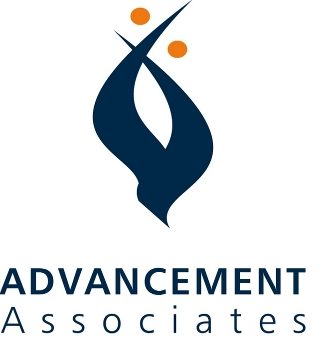A recent special report in The Chronicle of Philanthropy (March 18, 2004) confirms what many CEOs and board members of nonprofit, church-related organizations already know: Development officers are in hot demand these days, and attracting an experienced fundraiser to your organization is no easy task.
We can identify many of the factors causing this dilemma. As income from government and other external sources lags, many nonprofits must turn to increased charitable support. Relatively few people aspire to be fundraisers. Even fewer have formally trained for the task. Turnover and burnout plague the development profession; the average fundraiser lasts only 2-3 years in the same position. Two particular obstacles often faced by many church-related organizations are their rural locations and the modest salaries they offer. And even if these organizations are fortunate enough to find productive and experienced fundraisers, such professionals are often quickly lured away by appealing offers made by larger organizations who enjoy higher profiles and greater resources. What to do?
While we don’t argue that previous experience is unimportant in the development profession, Advancement Associates believes there is another way small, church-related organizations can find—and keep—fundraisers who are effective in their tasks and committed to the missions of the organizations they serve. This alternate approach requires three key understandings:
1. A focus more on essential qualities than on previous experience in seeking candidates for your development position.
2. Active identification of those who have development potential and effective means of encouraging their interest.
3. Realistic expectations and adequate support, training and resources for your new development officer.
Let’s explore these understandings in more depth.
Essential qualities
What are the qualities most important for the successful development officer? To supplement my own reading and learning from many years in the profession, I conducted an informal survey of the fundraisers with whom I currently work. Fourteen attributes emerged in the following order of frequency. Note that some of these qualities are inherent, while others can be learned.
1. A person who knows the organization and believes in its mission.
2. A relationship builder, who enjoys, respects and understands people, can motivate others, and has a good sense of humor.
3. A communicator, who has verbal, written and listening skills.
4. An organizer, who keeps accurate records, makes timely calls, and does thorough follow up.
5. A motivated self-starter, who works with persistence, optimism and creativity.
6. One who can maintain good working relationships with CEO, board and staff.
7. A generous donor to the organization.
8. A person who understands the “principles” of fundraising and adheres to high ethical standards.
9. One who is comfortable asking for money.
10. Someone who is open to learning and applying marketing concepts and strategies.
11. One who can use technology tools in support of the development program.
12. A flexible worker who is willing to travel and maintain irregular hours.
13. One who is committed to continuing education and willing to ask others for guidance and ideas.
14. A well-balanced person who has a life outside work and a means to maintain health and energy.
I invite you to consider the above qualities as “cake” and previous development experience as “frosting” when seeking an effective fundraiser for your organization. You’ll have many more candidates to consider—and enjoy the likelihood that they will stay a long time because they are committed to your mission.
Searching, finding, attracting
As you focus more on essential qualities than on previous experience, you’ll discover that potential candidates for your position aren’t actively looking for a fundraising job and may even have a dim view of the development profession. Beyond preparing a job description and placing a position announcement in the right publications, how can you effectively search, find and attract such persons?
I suggest that you first actively involve your organization’s leaders and key stakeholders—board members, staff, major donors, and others—in the search process. Introduce them to the list of essential qualities and have them identify potential candidates that come to mind, including comments about the specific strengths these persons would offer. Be intentional about this process and work with a timetable and deadline.
As the referrals arrive, look for the names mentioned most often. How might these potential candidates be best approached and invited to consider your development opportunity?
The goal of your search is three strong candidates—each of whom could do the job.
Supporting a new development officer
If you have followed the steps outlined above, you will have hired a new development officer who has all of the ingredients necessary to become an outstanding fundraiser—but no experience. You owe this person the support and resources needed to “get good.” How is this done? Some ideas:
1. Create a “learning plan” for your new development officer that includes a detailed orientation to the organization; adequate budget and staff help; opportunities to “network” with other professionals; provision for attending helpful workshops and seminars; and access to an outside consultant.
2. Have the development officer report to the CEO.
3. Expect and encourage board and staff interest in fundraising, and acquaint them with the roles they play in creating a strong development program.
4. Be sure the CEO is directly involved with development, especially building personal relationships with major donors.
5. Ask for a comprehensive, formal development plan each year that includes measurable goals, objectives and activities.
6. Set realistic contribution goals that reflect both budget needs and fundraising potential.
7. Conduct an annual evaluation of your development officer that includes reasonable measures of accountability.
So, depending on what you look for, how you look, and how you provide support, development officers are nowhere . . . or they’re everywhere! Best wishes for a good search and a great outcome!
